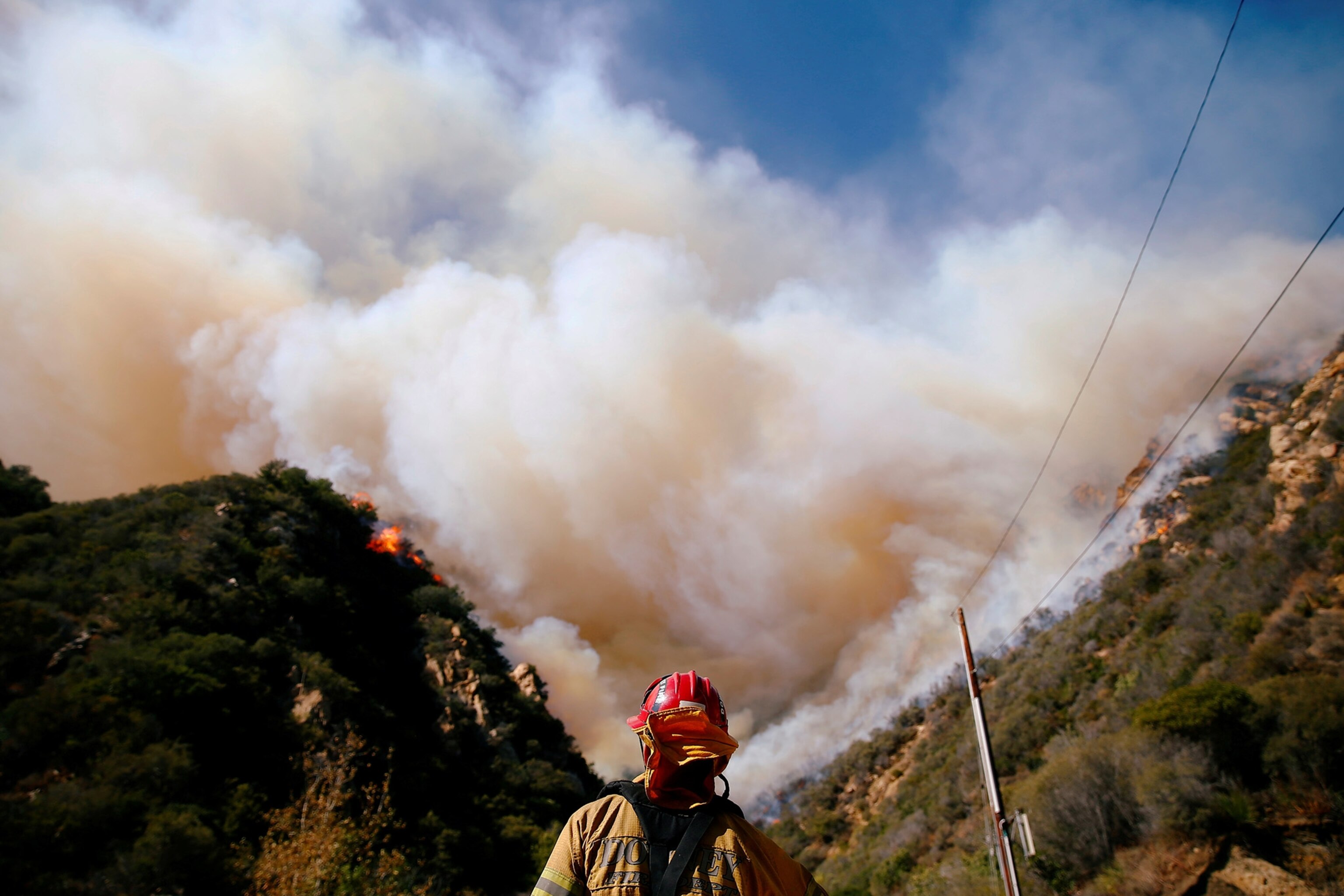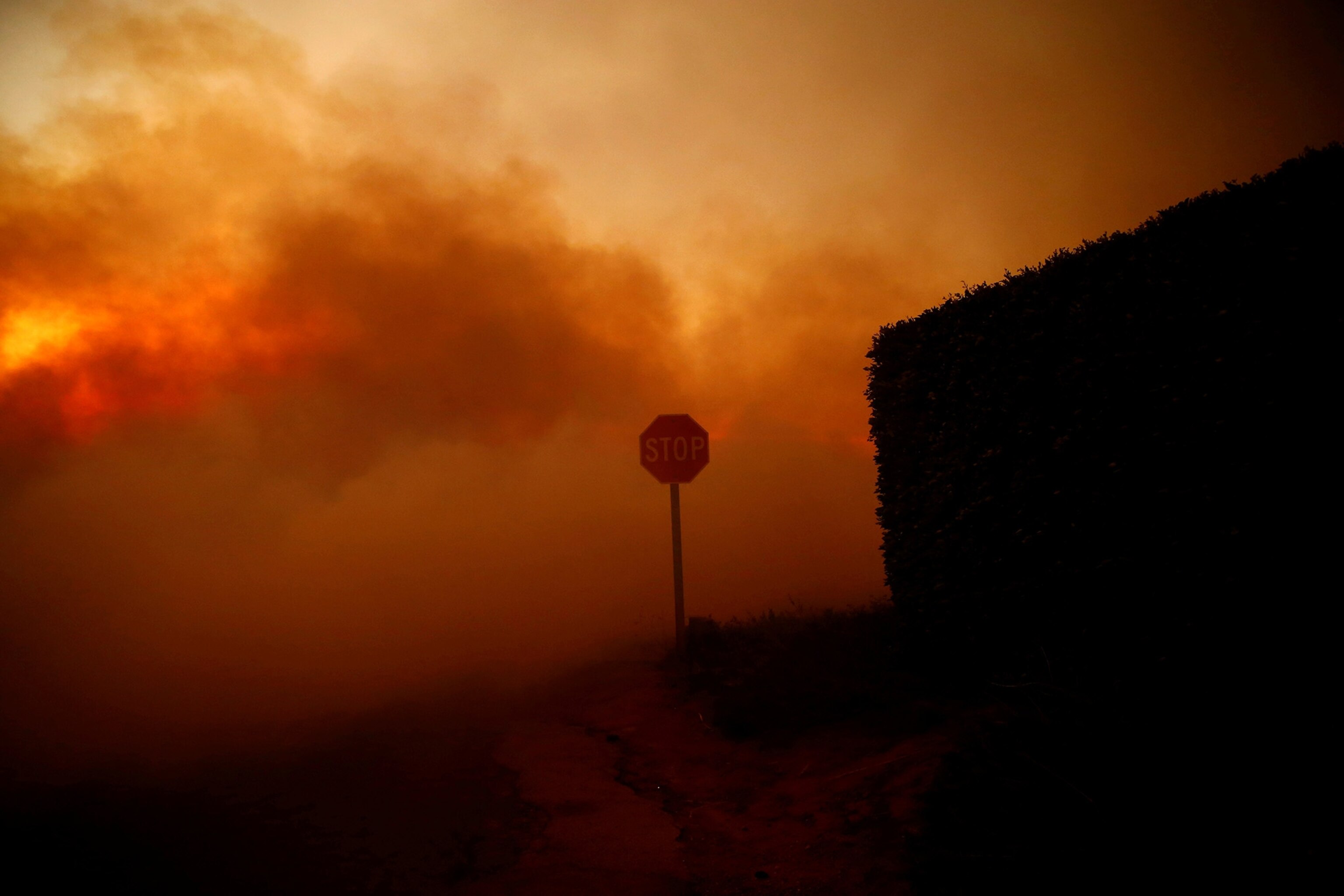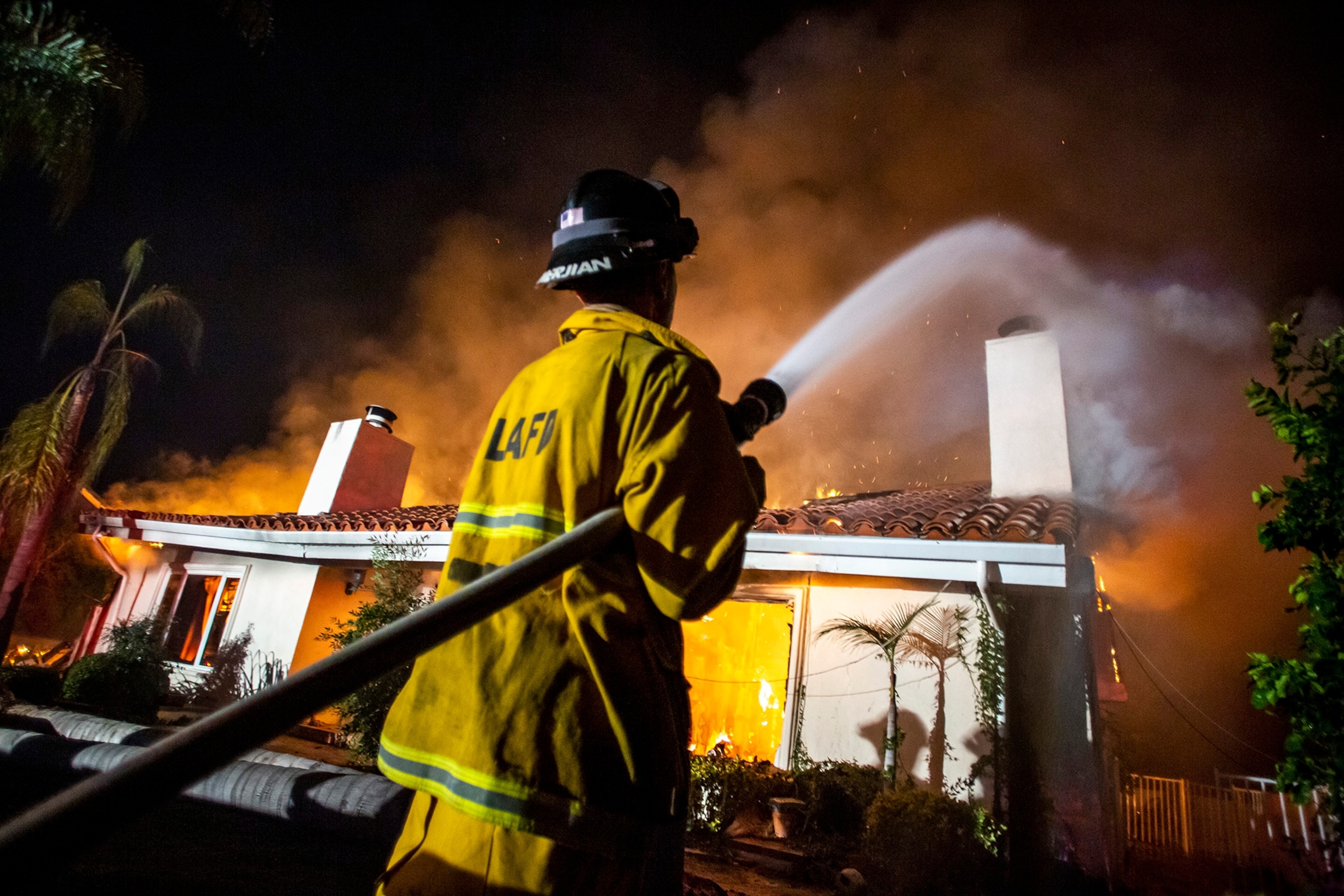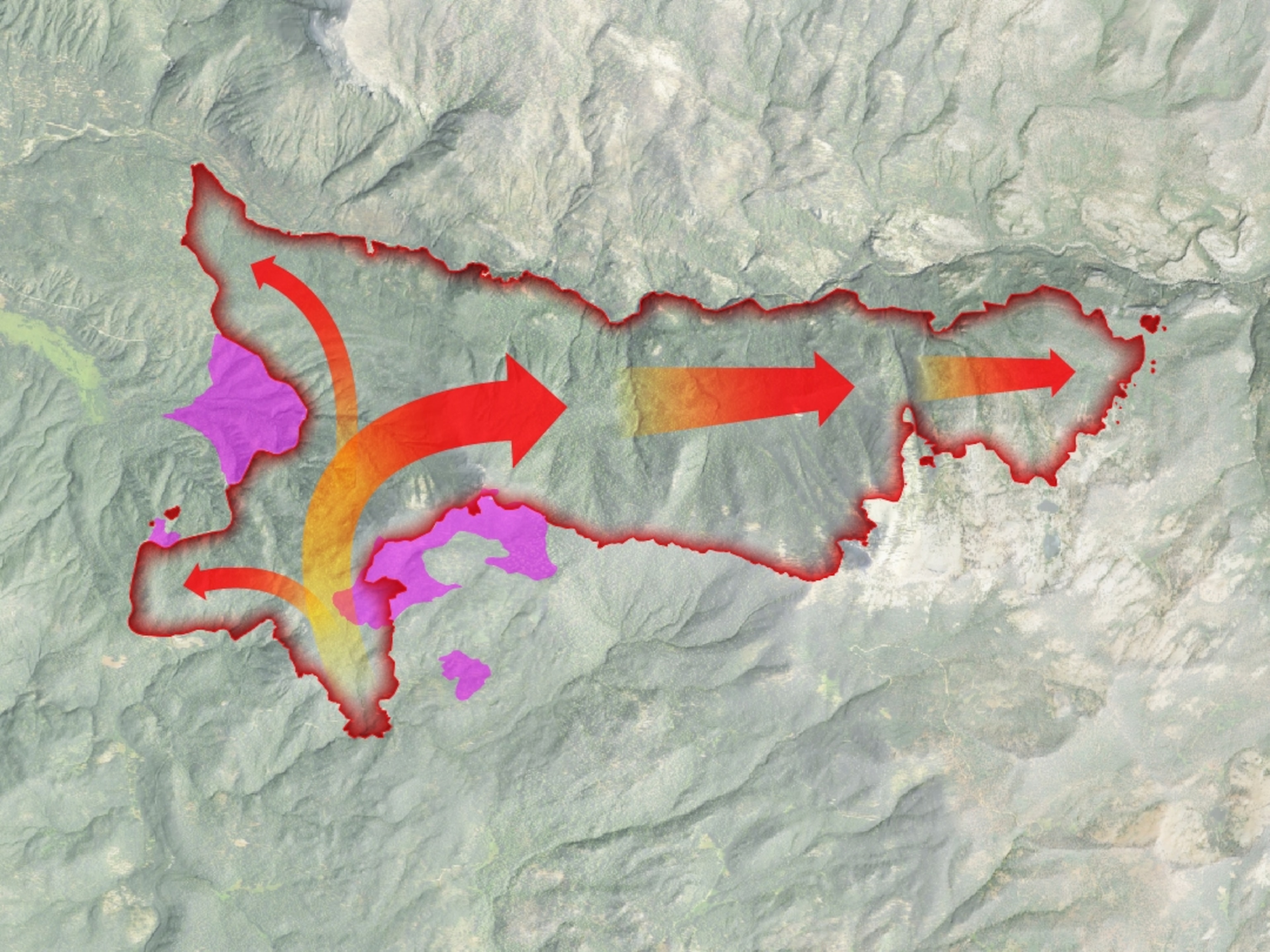Wildfire safety tips
Wildfires are often preventable, because many originate from human error.
ByNational Geographic Staff
August 12, 2019
3 min readUnlike many natural disasters, most wildfires are caused by people—and can be prevented by people, too. Meteorologists are not yet able to forecast wildfire outbreaks, so people in fire-prone areas should plan ahead and prepare to evacuate with little notice. Here are some tips on how to prevent wildfires and what to do if you're caught in the middle of one.
How to prevent a wildfire
- Contact 911, your local fire department, or the park service if you notice an unattended or out-of-control fire.
- Never leave a fire unattended. Completely extinguish the fire—by dousing it with water and stirring the ashes until cold—before sleeping or leaving the campsite.
- Always take care when using and fueling lanterns, stoves, and heaters. Make sure lighting and heating devices are cool before refueling. Avoid spilling flammable liquids and store fuel away from appliances.
- Do not discard cigarettes, matches, and smoking materials from moving vehicles, or anywhere on park grounds. Be certain to completely extinguish cigarettes before disposing of them.
- Follow local ordinances when burning yard waste. Avoid backyard burning in windy conditions, and keep a shovel, water, and fire retardant nearby to keep fires in check. Remove all flammables from the yard when burning.
Evacuation tips
- If advised to evacuate, do so immediately.
- Know your evacuation route ahead of time and prepare an evacuation checklist and emergency supplies.
- Wear protective clothing and footwear to reduce harm from flying sparks and ashes. (Get more wildfire safety information.)

Photograph by Mark Thiessen, National Geographic
Before you leave, prepare your home
- Remove combustibles, including firewood, yard waste, barbecue grills, and fuel cans, from your yard.
- Close all windows, vents, and doors to prevent a draft.
- Shut off natural gas, propane, or fuel oil supplies.
- Fill any large vessels—pools, hot tubs, garbage cans, or tubs—with water to slow or discourage fire.
If caught in a wildfire
- Don't try to outrun the blaze. Instead, look for a body of water such as a pond or river to crouch in.
- If there is no water nearby, find a depressed, cleared area with little vegetation, lie low to the ground, and cover your body with wet clothing, a blanket, or soil. Stay low and covered until the fire passes.
- Protect your lungs by breathing air closest to the ground, through a mask or moist cloth, if possible, to reduce smoke inhalation.
You May Also Like
Go Further
Animals
- How can we protect grizzlies from their biggest threat—trains?How can we protect grizzlies from their biggest threat—trains?
- This ‘saber-toothed’ salmon wasn’t quite what we thoughtThis ‘saber-toothed’ salmon wasn’t quite what we thought
- Why this rhino-zebra friendship makes perfect senseWhy this rhino-zebra friendship makes perfect sense
- When did bioluminescence evolve? It’s older than we thought.When did bioluminescence evolve? It’s older than we thought.
- Soy, skim … spider. Are any of these technically milk?Soy, skim … spider. Are any of these technically milk?
Environment
- Are the Great Lakes the key to solving America’s emissions conundrum?Are the Great Lakes the key to solving America’s emissions conundrum?
- The world’s historic sites face climate change. Can Petra lead the way?The world’s historic sites face climate change. Can Petra lead the way?
- This pristine piece of the Amazon shows nature’s resilienceThis pristine piece of the Amazon shows nature’s resilience
- Listen to 30 years of climate change transformed into haunting musicListen to 30 years of climate change transformed into haunting music
History & Culture
- Meet the original members of the tortured poets departmentMeet the original members of the tortured poets department
- Séances at the White House? Why these first ladies turned to the occultSéances at the White House? Why these first ladies turned to the occult
- Gambling is everywhere now. When is that a problem?Gambling is everywhere now. When is that a problem?
- Beauty is pain—at least it was in 17th-century SpainBeauty is pain—at least it was in 17th-century Spain
Science
- Here's how astronomers found one of the rarest phenomenons in spaceHere's how astronomers found one of the rarest phenomenons in space
- Not an extrovert or introvert? There’s a word for that.Not an extrovert or introvert? There’s a word for that.
- NASA has a plan to clean up space junk—but is going green enough?NASA has a plan to clean up space junk—but is going green enough?
- Soy, skim … spider. Are any of these technically milk?Soy, skim … spider. Are any of these technically milk?
Travel
- Could Mexico's Chepe Express be the ultimate slow rail adventure?Could Mexico's Chepe Express be the ultimate slow rail adventure?
- What it's like to hike the Camino del Mayab in MexicoWhat it's like to hike the Camino del Mayab in Mexico





















